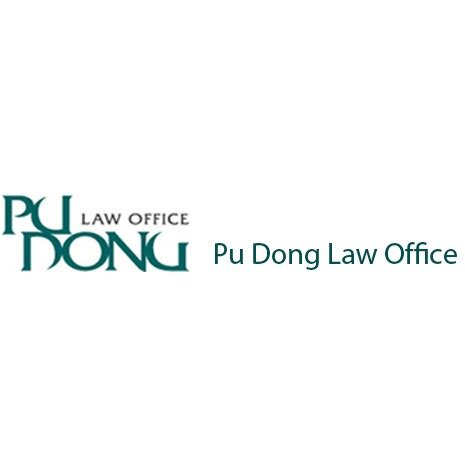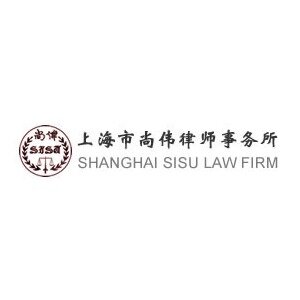Best Discrimination Lawyers in Shanghai
Share your needs with us, get contacted by law firms.
Free. Takes 2 min.
List of the best lawyers in Shanghai, China
About Discrimination Law in Shanghai, China
Discrimination in Shanghai, like the rest of China, is governed by various national and local laws aimed at promoting equality and preventing unfair treatment based on characteristics such as race, ethnicity, gender, disability, and more. While China has made efforts to strengthen anti-discrimination policies, understanding the specifics of these laws and how they are applied can be complex. Shanghai, being an international hub, often sees more pressing cases of discrimination, especially in employment, education, and housing sectors. The city follows China's national laws with additional local regulations that address specific issues relevant to the diverse population of Shanghai.
Why You May Need a Lawyer
People may require legal help in discrimination cases for several common reasons:
- Employment discrimination: If you have been unfairly treated at your workplace based on race, gender, or other personal characteristics.
- Housing discrimination: Facing discrimination when trying to rent or purchase property because of your ethnic background or nationality.
- Education discrimination: Being denied educational opportunities based on your identity or personal status.
- Consumer discrimination: Experiencing bias or unfair treatment as a customer in services or products.
- Access to public services: Unfair treatment when accessing governmental or public services.
A lawyer can provide guidance on your rights, help gather necessary evidence, and represent your case in legal proceedings.
Local Laws Overview
Shanghai's regulations on discrimination are primarily governed under the broader framework of national laws, such as the Labor Law and the Law on the Protection of the Rights and Interests of Women. Additionally, Shanghai has local ordinances and policies addressing specific forms of discrimination, including those related to:
- Employment: The Labor Contract Law emphasizes equal employment opportunities and prohibits discrimination based on ethnicity, race, gender, religious belief, etc.
- Gender Equality: Policies enforce gender equality in employment opportunities and wage parity.
- Disability: Encouragement of employment and public service access for people with disabilities, supported by the Regulations on the Employment of Persons with Disabilities.
- Foreign Nationals: Guidelines ensuring fair treatment in housing and employment for expatriates and foreign residents.
Frequently Asked Questions
What types of discrimination are illegal under Chinese law?
Illegal discrimination in China includes unfair treatment based on ethnicity, race, gender, religious belief, disability, age, nationality, and more.
How can I prove discrimination occurred?
Proving discrimination typically requires demonstrating a pattern of unfair treatment linked to one of the protected characteristics. Collecting evidence such as communications, witness testimonies, and documents is crucial.
Can I file a complaint anonymously?
While filing anonymously is challenging, some government bodies may allow it. Consulting a lawyer for confidential advice is recommended.
What remedies are available if I win a discrimination case?
Possible remedies can include compensation for damages, reinstatement of employment, official apologies, and policy changes within institutions.
Is there a time limit for filing a discrimination complaint?
There are statutory limits, often ranging between 1-2 years from the date of the discriminatory act. Consulting a lawyer quickly is advisable.
What institutions can I contact for resolving discrimination disputes?
The Shanghai Municipal Human Resources and Social Security Bureau handles employment-related disputes, while the judiciary can enforce other discrimination-related rights.
How can I ensure my foreign qualifications are recognized in Shanghai?
Legal recognition may require validation through equivalency assessments by authorized educational and professional bodies in China.
Are there any advocacy groups that support discrimination victims?
Several local and expatriate groups in Shanghai advocate for equal rights and may offer support or resources for discrimination victims.
Can language barriers constitute discrimination?
While not as explicit, impeding access to rights or services because of language can be considered discriminatory in some contexts, especially in governmental services.
What should I do if my employer retaliates against me for reporting discrimination?
Retaliation for reporting discrimination is illegal. Document any retaliatory actions and consult a lawyer promptly to protect your rights.
Additional Resources
For those seeking legal advice or support for discrimination issues in Shanghai, consider reaching out to the following resources:
- Shanghai Municipal Labor and Social Security Supervision Institute: They handle labor-related disputes including discrimination claims.
- Legal Aid Centers: Local legal aid services may provide free or low-cost assistance to eligible individuals.
- Shanghai Women's Federation: An organization providing support and advocacy for women's rights and anti-discrimination efforts.
- China Disabled Persons' Federation: A representative organization for people with disabilities that advocates against discrimination and promotes inclusivity.
Next Steps
If you believe you have experienced discrimination and need legal assistance, consider taking these steps:
- Document Everything: Maintain a detailed record of events, communications, and documents related to the discrimination.
- Consult a Lawyer: Seek a qualified lawyer specializing in discrimination cases in Shanghai to evaluate your legal options.
- File a Complaint: Depending on the nature of the discrimination, file complaints with relevant authorities or regulatory bodies.
- Seek Support: Engage with advocacy groups and support organizations for advice and potential resources.
Taking prompt legal action can help protect your rights and may lead to favorable outcomes in resolving discrimination disputes.
Lawzana helps you find the best lawyers and law firms in Shanghai through a curated and pre-screened list of qualified legal professionals. Our platform offers rankings and detailed profiles of attorneys and law firms, allowing you to compare based on practice areas, including Discrimination, experience, and client feedback.
Each profile includes a description of the firm's areas of practice, client reviews, team members and partners, year of establishment, spoken languages, office locations, contact information, social media presence, and any published articles or resources. Most firms on our platform speak English and are experienced in both local and international legal matters.
Get a quote from top-rated law firms in Shanghai, China — quickly, securely, and without unnecessary hassle.
Disclaimer:
The information provided on this page is for general informational purposes only and does not constitute legal advice. While we strive to ensure the accuracy and relevance of the content, legal information may change over time, and interpretations of the law can vary. You should always consult with a qualified legal professional for advice specific to your situation.
We disclaim all liability for actions taken or not taken based on the content of this page. If you believe any information is incorrect or outdated, please contact us, and we will review and update it where appropriate.









